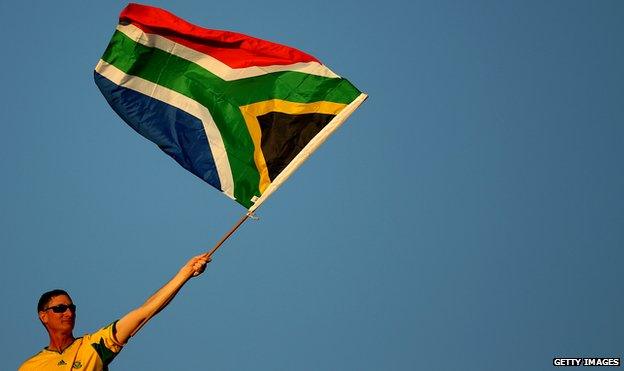Reactions to BBC South Africa report
- Published

The subjects that upset people in a country are usually a good indicator of the way they would like to think about the country itself. South Africa is no exception.
In the third edition of the BBC's new programme BBC News: The Editors, which sets out to pose difficult and challenging questions about our world, I asked whether white people really had a future in South Africa.
The answer my film came to was that they did - if they could put the embittered past behind them and embrace the country's new realities.
As evidence of the problems that faced some groups of white South Africans, I looked at white poverty (something which scarcely seemed to exist a few decades ago) and at the continued murders of white farmers.
When an article based on the film appeared on the BBC's website, there was a strong reaction in South Africa. Entire chat programmes discussed little else for hours on end.
Scarcely anyone, it seemed, denied that there was poverty among some white people, or that white farmers were being murdered at an alarming rate.
But there was a questioning of the figures. The civil society organisation AfriForum consulted a charity which works with poor Afrikaners, Solidariteit Helpende Hand, and estimated a figure of up to 400,000 white people living in poverty. My article made clear the source of the estimate and they stand by their figures. Other estimates vary widely and any figure is inevitably only an estimate.
A spokeswoman for Solidariteit Helpende Hand was later quoted as saying that there were more than 70 places around Pretoria where people lived in informal structures. (I had mentioned the figure of 80). Some just contained 10 or so people, she said, others as many as 300.
The 2011 census in South Africa said that only 7,754 white households lived in informal settlements. That would indicate that something like 31,000 people lived this way. But census returns are famously unreliable in assessing the numbers of people who live on the fringes of society.
The dispute about numbers - and it was the numbers which seem to have upset people in South Africa most - is in danger of obscuring the rest of the story.
In particular, little attention seemed to be given to the fact that AfriForum, which has documented the numbers of white farmers and their families who have been murdered in the past 20 years, believes there are more than 2,000 of them.
It is perfectly reasonable, of course, to ask why I should have focused on white poverty and white farm murders, when the figures for black poverty and black murders are so much higher.
But these figures are reported often. The key to news reporting is to tell people things they did not previously know.
After my report an ANC spokesman said: "The BBC is living in their own world with their racist tendencies where they wish to undermine the government of South Africa because it is largely a black government."
Of course, that is an accusation I wholly reject. It made me particularly glad that I had introduced my report for BBC News: The Editors with the words: "The best moment in my entire career was here in South Africa in 1994, when the ANC came to power under Nelson Mandela."